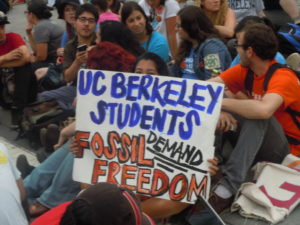Guest post by Jacqueline Simonds.
Way back in 1979, I worked in a Texas bar & grill. One of my co-workers discovered she had Graves Disease/hyperthyroidism. She was put on a medication and her slightly bulging eyes and weight started to diminish.
Then she discovered she was pregnant.
[Recall that in 1979, there were no home pregnancy tests available. By the time she figured out she might be pregnant, and got into the doctor, she was maybe 2 – 2.5- months along. That’s 6 – 8.5 weeks.]
She told the doctor who was treating the thyroid, and he freaked. The medication she was taking would 100% result in a mangled fetus. He insisted she get an abortion – for the sake of her health, and her family.
My friend, a Latina, was also very very Catholic, and already had 3 children with her husband. This caused a terrible crisis for her. So she went to her priest, and told him what the doctor said. He immediately told her she couldn’t have the procedure, because it was against God.
My friend was completely wrecked by the moral and ethical challenges before her. What should she do? She understood the danger, but the priest said it was wrong. She cried all day at work.
She called her doctor and told him what the priest said. Then the doctor did something sort of amazing.
He called the priest and asked him to come to the office.
When they met, the doctor explained what was happening in my friend’s body. He showed the priest pictures of what a healthy developing fetus looked like, and what would happen to this one. And then he described, in great detail, the life my friend and her family would have. That my friend would have to quit work, and take full care of the child, for the rest of its life (caring for a medically-challenged child was even more financially and emotionally draining then than it is now).
But more, the doctor said, is that it might just kill her. Then her 3 children would be left without a mother, her husband without a wife, the parish without a devout member. And how did this serve God? How, he asked the priest, can you help her best? (He did not demand that the priest give in to the doctor’s way of thinking.)
The priest was astonished at all this information, and asked for time to go and pray. The doctor told him he encouraged him to do so, but not to take too much more time. The procedure had to be done soon.
The next day, the priest called my friend and told her he felt God wanted her to lay down the burden of the pregnancy, and that the priest himself would take her to the procedure.
And he did. And she was saved.
My friend suffered guilt and remorse and sorrow on a scale I could barely stand to watch. But with all of our love, she got through it.
If the conversation between the priest and the doctor seems unlikely to you, it is because times have changed that radically. We were on the middle path back in the 70s, where you could object to abortion, but see its necessity. When you could be pro-choice, but have an adult conversation that didn’t involve a screaming match – and therefore might change a mind.
Extremism erases rationality and damages real people. Right now, we HAVE to fight right wing pseudo-Christian extremism, because it is a toxic poison to women’s bodily autonomy. Once we can force the extremists back into the shadows, we can return to a time of the middle path, where your decision is YOURS.






